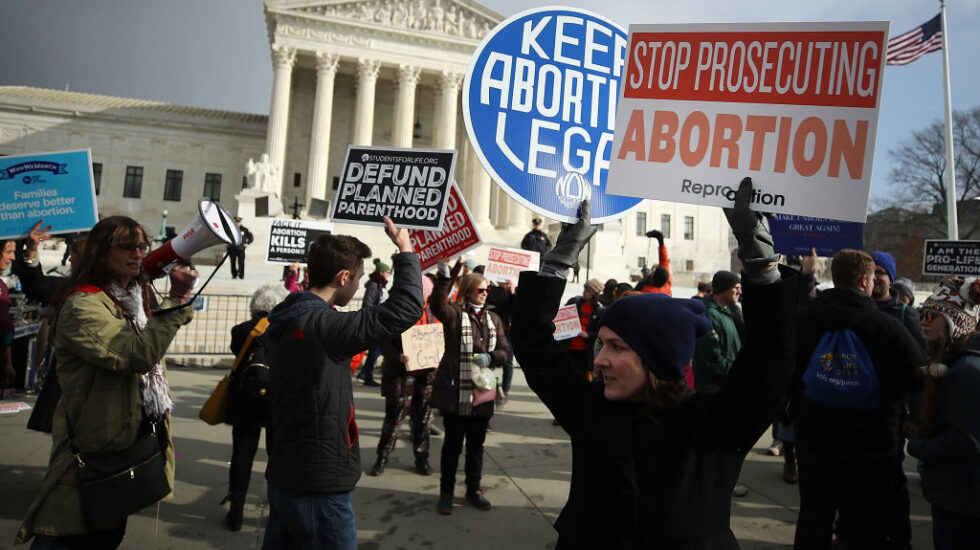On Monday, the Supreme Court agreed to hear a case involving a controversial Mississippi law that bans most abortions after the 15th week of pregnancy. The case has multi-faceted implications for reproductive rights, the new conservative majority on the Supreme Court, and the 2022 midterm election.
“Alarm bells are ringing loudly about the threat to reproductive rights,” Nancy Northup, the president of the Center for Reproductive Rights, said in a statement. “The Supreme Court just agreed to review an abortion ban that unquestionably violates nearly 50 years of Supreme Court precedent and is a test case to overturn Roe v. Wade.”
If Mississippi wins the case, experts explain, other states will feel empowered to beginning chipping away at abortion access. “If Roe v. Wade were to fall as a result of this case, states across the country are poised to ban abortion. The impact would be devastating, especially on those who already face the greatest barriers to care,” said Christian LoBue, a representative of Naral Pro-Choice America.
Since the Roe v Wade ruling in 1973, the Supreme Court has been reluctant to address abortion issues. But the current court’s conservative orientation might change that. According to The Wall Street Journal:
The court has largely upheld abortion rights since the Roe decision but typically by the narrowest of margins. That record puts the focus on the three justices appointed since 2017 by President Donald Trump, who made conservative judicial nominations a priority during his administration.
When asked during a 2016 presidential debate whether he wanted to see Roe v. Wade reversed, Mr. Trump said: “If we put another two or perhaps three justices on, that will happen, and that’ll happen automatically, in my opinion, because I am putting pro-life justices on the court.”
Abortion has long been one of the most inflammatory fronts of the culture wars, with the majority of Americans supporting pro-choice policies. With the Supreme Court decision on the Mississippi case expected just a few months before the 2022 midterms, advocates on both sides of the issue say the ruling will resonate with voters.
“Abortion just became one of the top issues of the 2022 midterm elections. See you on the battlefield,” tweeted Nikki Goldschein, associate director of Planned Parenthood’s political action committee.
“It has the potential to energize our side, and energize suburban women,” Democratic pollster Celinda Lake told Bloomberg.
Meanwhile, Republicans also see a political upside. From The Associated Press:
If the Mississippi ban is upheld, “pro-lifers would be energized,” said Michael New, an abortion opponent who teaches social research at Catholic University of America.“
It would show that the strategy of supporting pro-life candidates for the presidency resulted in a Supreme Court that was sympathetic to legal protections to preborn children,” he said. “Pro-life state legislators in other states would likely pass similar 15-week abortion bans, confident that these bans would also be upheld.”
At the White House, Press Secretary Jen Psaki said the Biden administration is “committed to codifying Roe.” Last month, Biden announced a commission that would study the structure of the Supreme Court. Progressives are hoping he’d expand the number of judges, thereby diluting the conservative majority.
